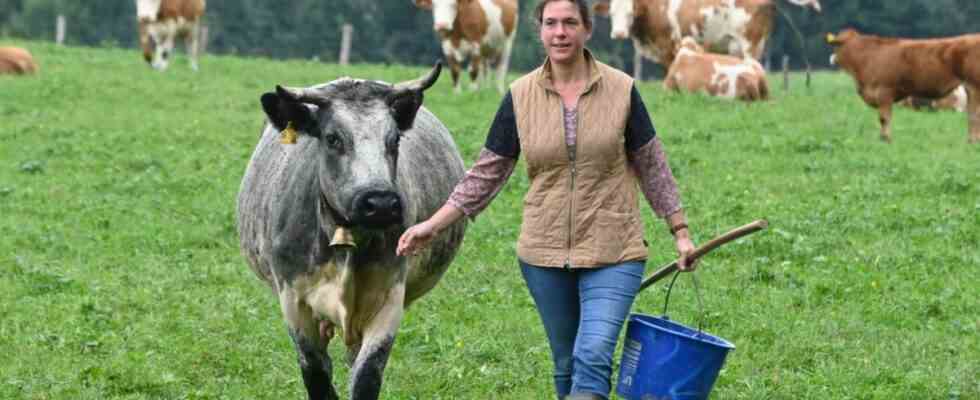When the clocks turn back one hour from Saturday to Sunday next weekend, many people will be affected: According to a study by the DAK, around a third of Germans have had health problems as a result of the time change. For animals, on the other hand, the change is particularly noticeable when feeding. An hour’s delay can certainly make you hungry, as pet owners know.
Cattle are also often used to fixed feeding times. “Regular feed intake is very important for ruminants so that their stomachs always have something to do,” says Valérie Hendriock, a farmer from Straßlach. “A hungry flock would definitely become restless and unhappy, which is something to avoid at all costs.” Hendriock and her husband have been running Gut Ingold in the Beigarten district of Straßlach for 20 years. In addition to the 55-strong herd of suckler cows, six pigs, 25 laying hens and the dog Lisa live on the farm, and in the summer months there are also quails and ducks.
Cattle appreciate regulated processes
For her animals at Gut Ingold, Hendriock can give the all-clear regarding the time change: nobody has to go hungry. Some farmers try to stagger feeding by just a few minutes each day until the original rhythm has been reached again. In this way, the animals should slowly get used to the changeover. “I know that from my colleagues who run a dairy farm,” says Hendriock. However, you are not dependent on this method yourself.
Because the calves are allowed to drink independently from their mothers anyway. In addition, the cattle at Gut Ingold enjoy all-day grazing from May to the end of October – “during this time there is no daily stable work”. Only after the time change do the cattle come into the barn, and then Hendriock feeds them at about the same time in the morning and in the evening. A fixed stable routine in winter is always good for the animals, Hendriock observes: “Like us humans, they value a regular daily routine.” The 47-year-old then mitigates the time change in spring by giving her animals a little more food in the evening.
For the rest of the work on the farm, a consistent time throughout the year would also make more sense, says Hendriock. When harvesting hay in summer, for example, you could start an hour earlier in the day. “That would definitely optimize the workflow.” In her own words, the farmer has been of the opinion for many years that the time change could be abolished. “It only brings restlessness to a familiar rhythm.”

